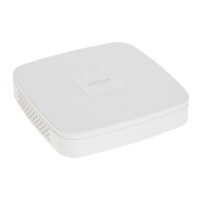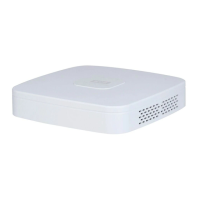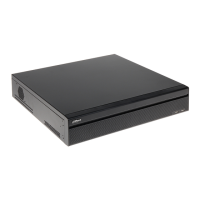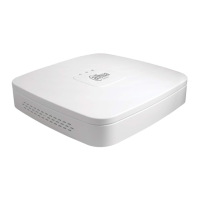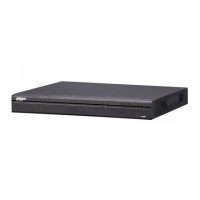480
6 Glossary
DHCP: DHCP (Dynamic Host Configuration Protocol) is a network protocol. It is one of the TCP/IP
protocol cluster. It is principally used to assign temporary IP addresses to computers on a network.
DDNS: DDNS (Dynamic Domain Name Server) is a service that maps Internet domain names to IP
addresses. This service is useful to anyone who wants to operate a server (web server, mail server,
ftp server and etc) connected to the internet with a dynamic IP or to someone who wants to connect
to an office computer or server from a remote location with software.
eSATA: eSATA(External Serial AT) is an interface that provides fast data transfer for external storage
devices. It is the extension specifications of a SATA interface.
GPS: GPS (Global Positioning System) is a satellite system, protected by the US military, safely
orbiting thousands of kilometers above the earth.
PPPoE: PPPoE (Point to Point Protocol over Ethernet) is a specification for connecting multiple
computer users on an Ethernet local area network to a remote site. Now the popular mode is ADSL
and it adopts PPPoE protocol.
WIFI: Wi-Fi is the name of a popular wireless networking technology that uses radio waves to
provide wireless high-speed Internet and network connections. The standard is for wireless local
area networks (WLANs). It is like a common language that all the devices use to communicate to
each other. It is actually IEEE802.11, a family of standard The IEEE (Institute of Electrical and
Electronics Engineers Inc.)
3G: 3G is the wireless network standard. It is called 3G because it is the third generation of cellular
telecom standards. 3G is a faster network for phone and data transmission and speed Is over several
hundred kbps. Now there are four standards: CDMA2000, WCDMA, TD-SCDMA and WiMAX.
Dual-stream: The dual-stream technology adopts high-rate bit stream for local HD storage such as
QCIF/CIF/2CIF/DCIF/4CIF encode and one low-rate bit stream for network transmission such as
QCIF/CIF encode. It can balance the local storage and remote network transmission. The
dual-stream can meet the difference band width requirements of the local transmission and the
remote transmission. In this way, the local transmission using high-bit stream can achieve HD
storage and the network transmission adopting low bit stream suitable for the fluency requirements of
the 3G network such as WCDMA, EVDO, TD-SCDMA..
On-off value: It is the non-consecutive signal sampling and output. It includes remote sampling and
remote output. It has two statuses: 1/0.
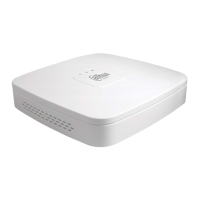
